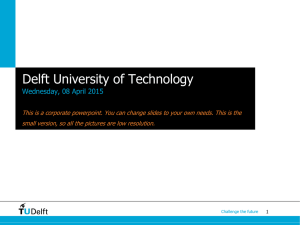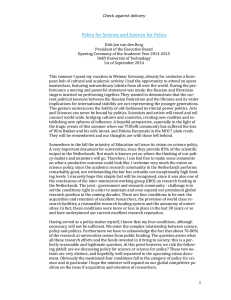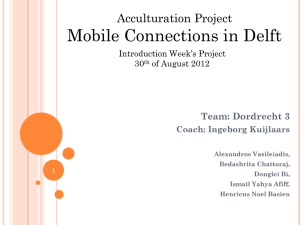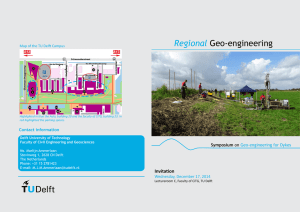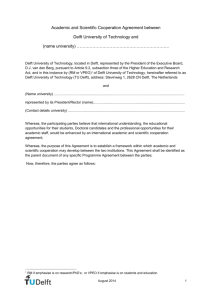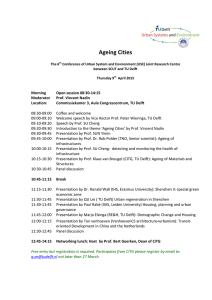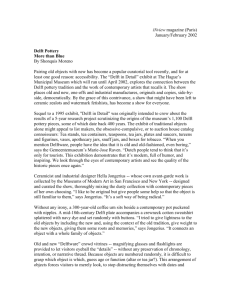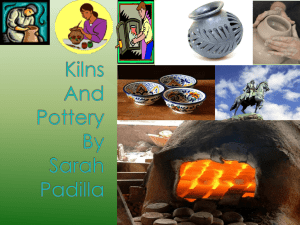DELFT BLUE
advertisement
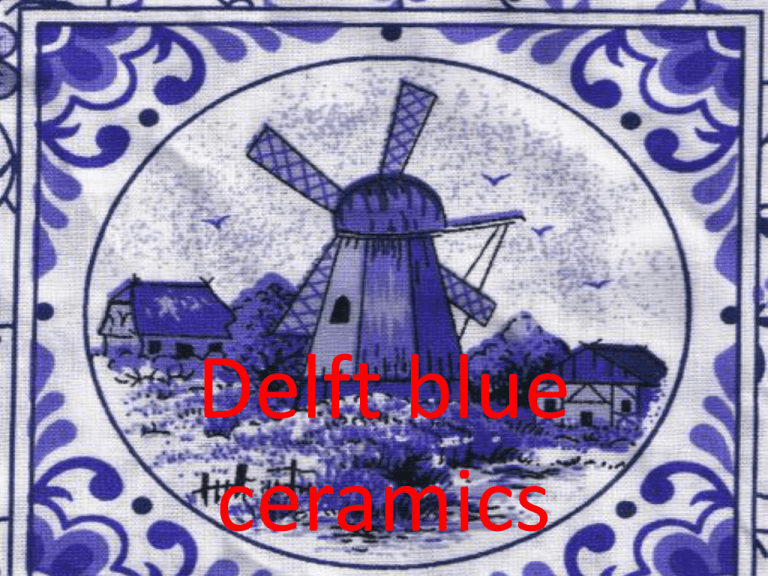
Delft blue ceramics history Delftware, or Delft pottery, is a blue and white pottery (some are colourful) made in and around Delft in the Netherlands from the 16th century. The Dutch East Indian Company ( VOC) began importing porcelain from China in the seventeenth century. (Delft was the home town of the VOC) This porcelain, especially the blue and white, became very popular. In Delft, in the seventheenth century 32 factories were producing Delftware From Clay to the famous Delft pottery The Delfts ceramics have a white background. They use a white baking clay. This clay is imported from Germany and England. The Dutch clay doesn't burn white but red and yellow. • First the clay is mixed with water. • This liquid clay is poured into moulds. Delftware is made with moulds. these are moulds for christmas balls. • The clay has to dry for several hours. Then they remove the liquid, otherwise the product becomes to heavy . • when the balls come out the moulds they make them smooth with water. • The balls and other articles are put into an electric heated oven. The firing takes 8 hours and the temperature reaches 1040 degrees During the first firing, the clay changes into stone which is called biscuit. After this first heating, the balls are painted. The painting is done by hand. Each item is entirely hand painted with very fine brushes by professional painters. The painter will use a black paint which will change into the famous color blue during the second firing. Different articles in Delft Blue These days Delft Blue is an inspiration for several artists A group of 15 pupils of our school visited the Delft Blue factory 2 weeks ago. At school we made some mirrors inspired on the Delft blue ceramics. For each partnerschool one
